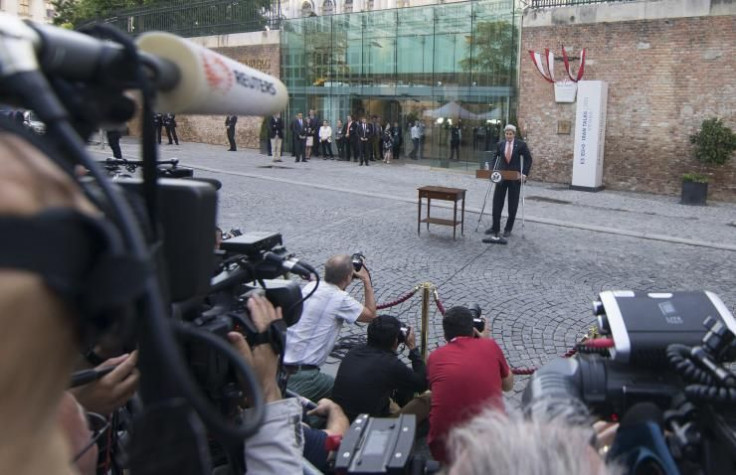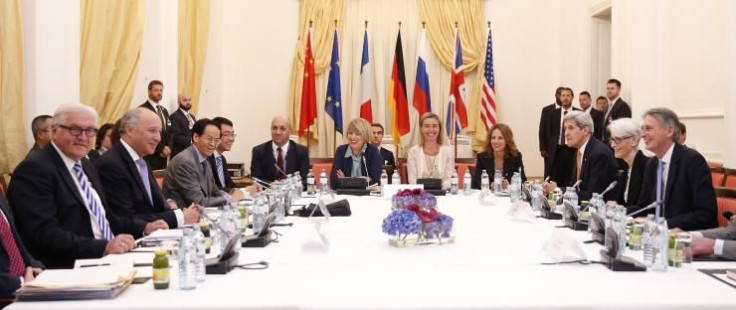Iran Nuclear Deal Negotiations Will Require More Time Beyond Deadline, John Kerry Says

Negotiations over Iran's nuclear program will continue in Vienna, U.S. Secretary of State John Kerry announced Thursday, implying the dealings would be pushed beyond the current Friday deadline. "We shouldn’t get up and leave simply because the clock strikes midnight,” Kerry said.
The deadline has been pushed back twice in the last two weeks, as Kerry and Iranian Foreign Minister Mohammad Javad Zarif have met daily to work out several key sticking points, especially the arms embargo currently in place against Iran and details of nuclear inspections. Kerry did not give details on the current state of the negotiations, and Zarid tweeted that the duo was "not rushed."
We're working hard, but not rushed, to get the job done. Mark my words; you can't change horses in the middle of a stream. #IranTalksVienna
— Javad Zarif (@JZarif) July 9, 2015"The simple fact is that despite all of the progress we have made, and it's real, some of the tough issues remain unresolved,” Kerry said. "We know that difficult decisions don’t become easier over time and one way or another, those decisions must be taken soon."
The framework of an agreement requires that Iran reduce its low-enriched uranium stockpile and begin scaling back the number of installed centrifuges. In exchange, the U.S. and European Union would loosen sanctions on Iran.
Iran has denied any intention to build nuclear weapons, insisting instead that its nuclear program is strictly meant for energy purposes. The regional power has been involved in the negotiations primarily to lift the sanctions that have crippled its economy.

A deadline beyond Friday will mean Congress has twice as long to review the accord. Both parties were reportedly hoping to avoid negotiation fatigue.
If successful, an agreement would mark a milestone in relations between the United States and Iran, which have maintained a hostile relationship since the Iranian Revolution and the hostage-taking at the U.S. Embassy in Tehran in 1979. In both countries, hard-liners have voiced their opposition to the present agreement.
© Copyright IBTimes 2025. All rights reserved.






















